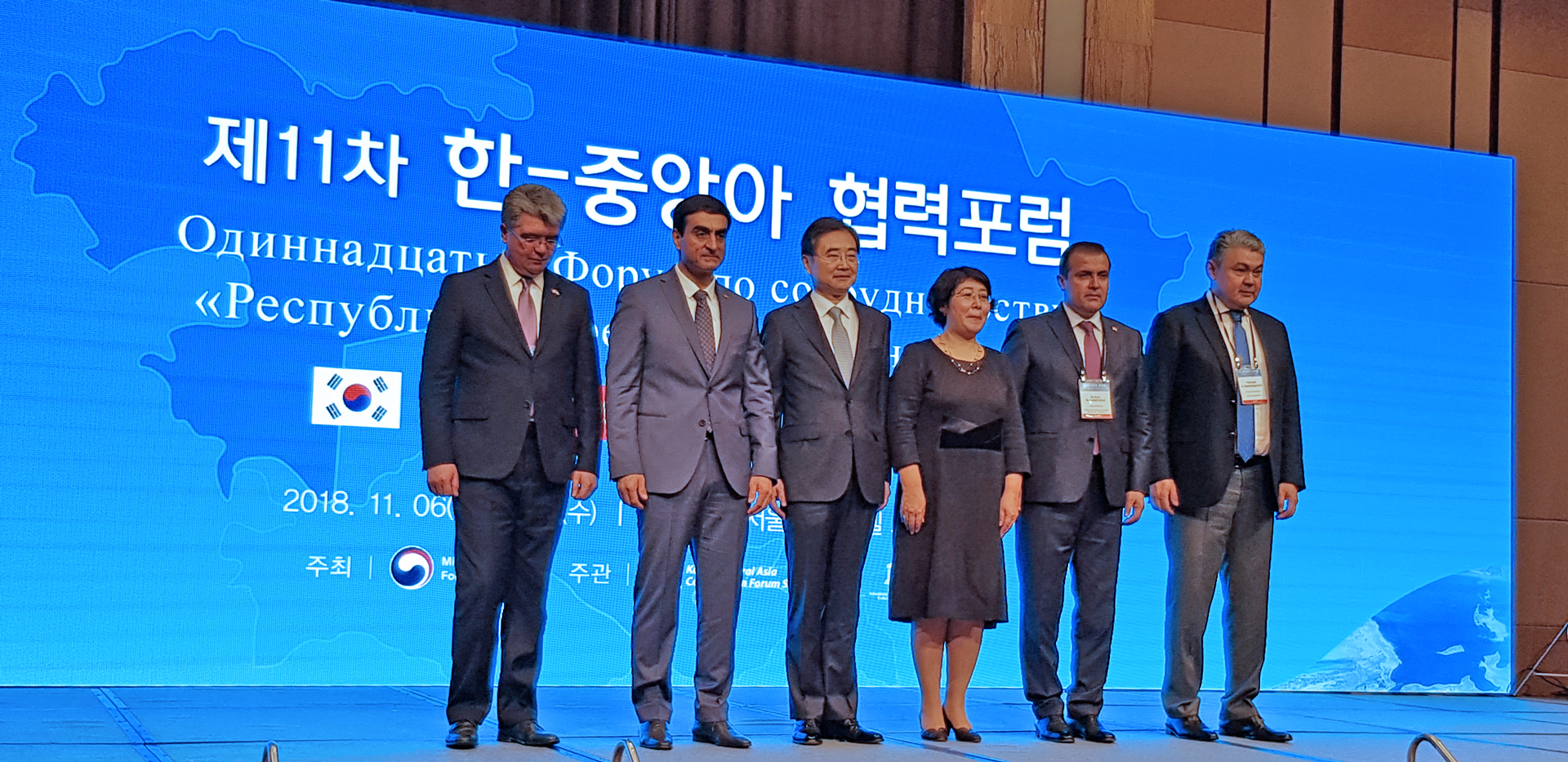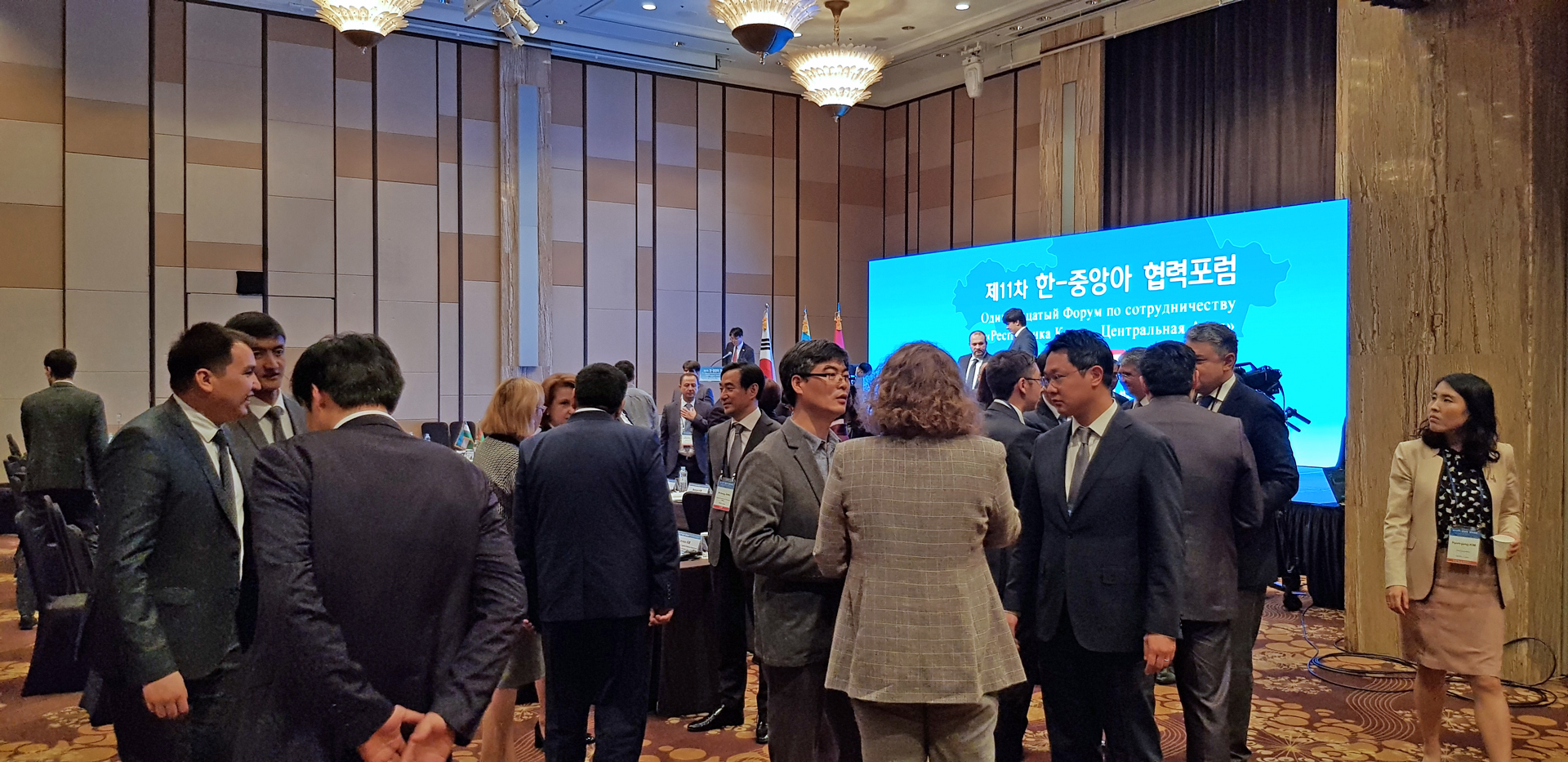
On November 6-7, the 11th Republic of Korea-Central Asia Cooperation Forum was held in Seoul. The event was attended by representatives of the government and business sectors of Korea, delegations from Central Asian countries, as well as international organizations. A separate session of the forum was focused on the efficient use of water resources and environmental protection.
The government of the Republic of Korea has been holding a forum annually since 2007. The event is aimed at strengthening cooperation between Korea and Central Asian countries in the field of politics, economy and society. The discussions involve representatives of the governments of all countries of Central Asia and Korea, as well as experts from various industries.
On the first day of the forum, representatives of Korea presented their vision of the future development of cooperation with the countries of Central Asia. It was noted that interaction between the countries of the region is active as never before, which creates favourable conditions for strengthening partnership with countries outside the region, as well as with international organizations.
On November 7, discussions were focused on the efficient use of water resources and saving the Aral Sea. Delegates from Central Asian countries presented national reviews of challenges in these areas. Also, representatives of the countries of the region expressed their vision of the "RC-CA" cooperation. In particular, the forum participants noted the positive experience of Korea in the field of environmental management.
Representatives of international organizations also spoke at the forum: the United Nations Development Programme, the International Fund for Saving the Aral Sea and the Regional Environmental Centre for Central Asia.
It is worth noting that in the countries of the region there is an understanding that water resources are crucial for socio-economic development. Together with the development partners, a number of water management projects are already being implemented in the region:
-
Water diplomacy and cooperation: the EU process, Berlin (Germany) and Blue Peace (Switzerland);
-
Improving water infrastructure: World Bank, ADB, EBRD;
-
Water management at the basin level: EU, UNDP, USAID;
-
Opportunities and institutional support: EU, USAID, World Bank.
The Executive Director of CAREC Dr Iskandar Abdullaev presented more details on water management in Central Asia. Dr Abdullaev explained that most of the water resources in the region are represented by transboundary endorheic basins with no direct links to the ocean. Inland basin types are vulnerable to climate change, human impact, including the development of agriculture.
According to Dr Abdullaev, for these reasons, the cost of limited cooperation in the region is very significant. Together with the analytical centre adelphi in 2017, CAREC conducted a study “Rethinking water in Central Asia”. Analysis has shown that even if only a limited part of all aspects are taken into account the losses due to insufficient cooperation sum up to more than 4.5 billion US dollars per year.
Dr Iskandar Abdullaev also presented CAREC vision on water partnership “The Republic of Korea-Central Asia” (WCPA). Taking into account the experience of Korea in the field of effective water resources management and the implementation of scientific research, Dr Abdullaev identified four most relevant areas of partnership:
-
Strong focus on improving water accounting and water productivity: automated and digital water systems;
-
Data and information reliability improvement: data recording, collection, processing and sharing;
-
Multiple functions of water systems: the greening of water resources management, introducing of green functions/indicators in water system performance;
-
Increasing adaptability of water systems to climate change: Disaster Management (drought/floods), delivery efficiency and planning accuracy.
Participants agreed that the development of the “Korea-Central Asia” partnership has great potential for both parties. Following the results of all discussions that took place in two days, the secretariat of the forum will prepare a final document: a roadmap. This document will reflect all possible directions of development of cooperation "Republic of Korea - Central Asia".

